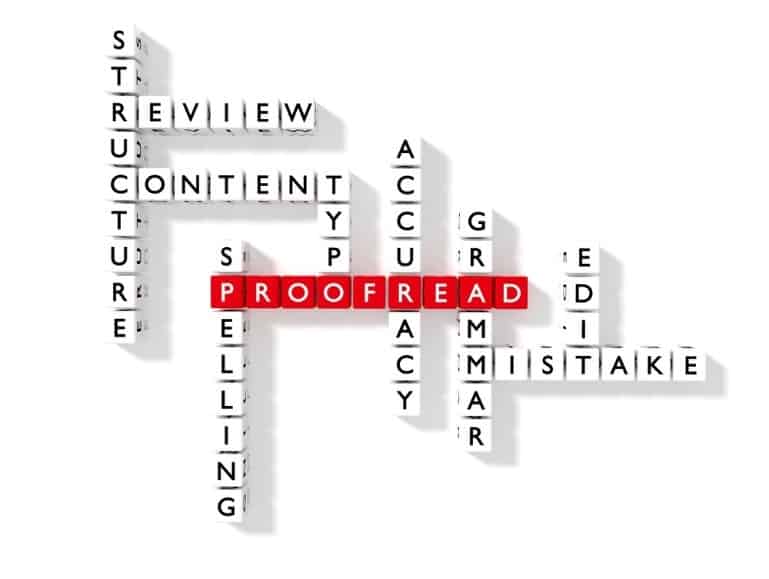In our modern, technologically-advanced world, the work of a proofreader may seem a bit unnecessary. After all, there are dozens of free and paid proofreading programs such as Grammarly, The Hemingway App, and countless others.
In addition, almost all major word processors have spell checkers and grammar checkers that can help you avoid common errors and spelling mistakes.
With all of these resources on hand, why are human proofreaders still relevant?
Here are a few reasons…
Proofreading Programs Aren’t Perfect
Relying solely on a proofreading program can be dangerous. While you’re likely to catch basic grammar, spelling, and style mistakes, proofreading programs are not perfect. Just because your writing doesn’t bring up any red flags on your proofreading program doesn’t mean that it’s ready to be published.
In fact, a comprehensive study performed on Grammarly showed that it caught only 77% of grammatical mistakes, and often made incorrect grammatical suggestions. Relying solely on this program would lead to a subpar piece of writing.
Proofreading Programs Don’t Specialise
This is one of the most important reasons that a human proofreader is so essential. Digital proofreading programs are great at catching spelling mistakes and basic grammatical errors – but they can’t truly specialise.
For example, if you’re writing a complex business proposal, a proofreading program may be able to inform you if you used “your” instead of “you’re”.
However, it would be unable to inform you whether or not you’re referencing the right web links. It would be unable to tell you if you’re using the correct facts and figures based on your business reports. It would also not be able to check that the names of referenced individuals are correct.
A human proofreader is able to do that and more. A human proofreader can specialise, and search for errors and mistakes that a digital program would never be able to find.
Proofreading Programs Can’t Analyse Writing Structure
The flow, structure, and argument of a paper or an essay are absolutely critical to its success – and guess what? Proofreading programs have no way of analyzing these things.
Sure, a proofreading program can tell you if you misspelled “your” in your essay, but it will be completely unable to understand whether or not a piece of writing is effective, flows well, and has a clear, concise argument.
Human proofreaders are excellent at spotting structural issues in writing, and can suggest revisions that would help strengthen the argument of a piece, make it flow more clearly, and provide an overall easier and more informative reading experience.
So don’t be threatened by digital proofreading programs. They may be a useful tool, but they’re not a replacement for the skills of a talented, human proofreader.
If you’re interested in becoming a professional proofreader, take a look at our Proofreading & Editing course. Learn everything there is to know about proofreading, including how to set up your own business at home.











